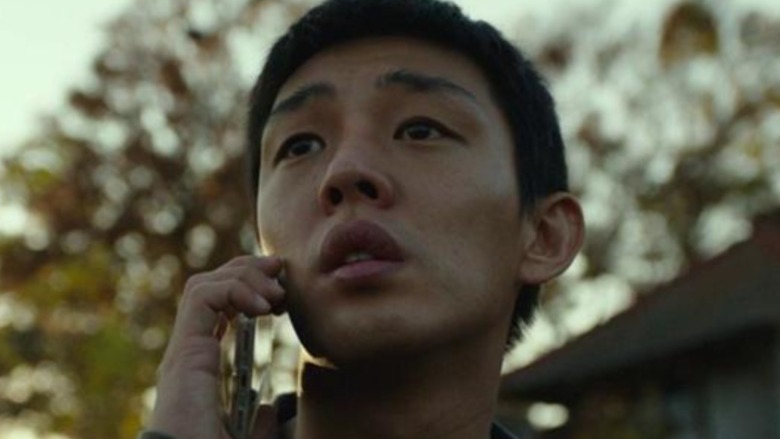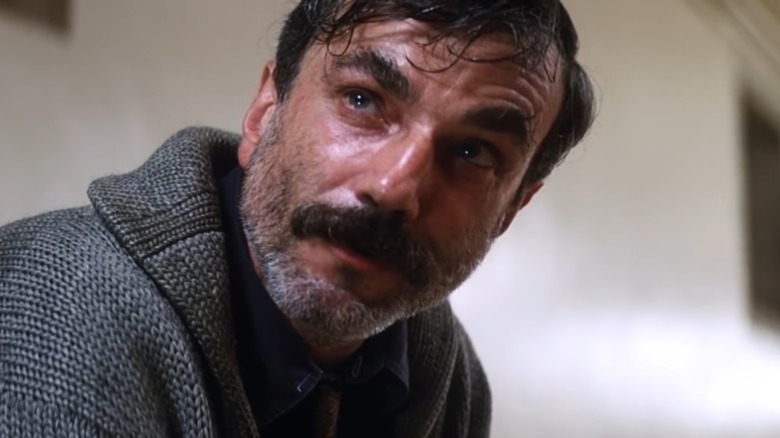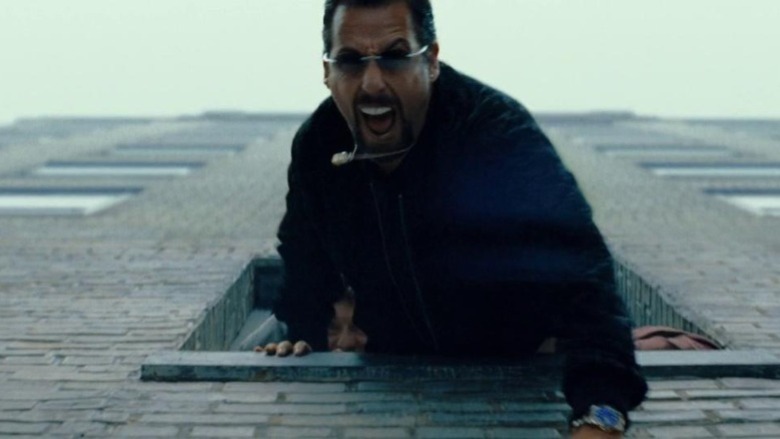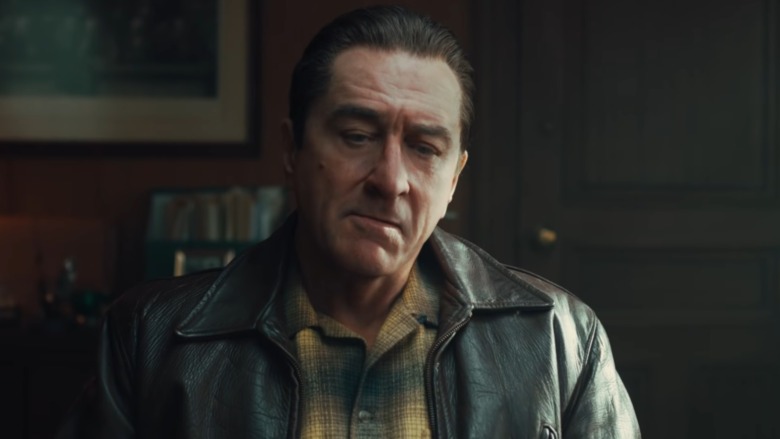There Are Only Four Near-Perfect Thriller Movies On Netflix According To Metacritic
Everybody loves a good thriller. By working tension and anticipation, the best examples of the genre are able to create a vacuum seal of emotion between themselves and the audience, all but making us forget about the outside world for their duration. It's no coincidence that, amid a wealth of Hollywood action blockbusters and star-studded comedies, four of the most-watched movies on Netflix in 2020 were "365 Days," "#Alive," "The Paramedic," and "The Platform" (via What's On Netflix). All are international thrillers that gripped audiences across language barriers.
If you're looking for the next nail-biter to discover on Netflix, Metacritic might be of service. The review aggregator differs from its main competitor, Rotten Tomatoes, because instead of compiling the percentage of critics who liked a certain movie, it calculates an average score between all the reviewers on its database. This makes it a much "stingier" grader than RT — if a movie reaches a Metascore higher than 90, that means critics are considering it almost perfect.
Only a handful of movies per year manage to reach scores that high. In fact, of the nearly 200 thriller films available on the U.S. Netflix catalog (via WON), a grand total of four have Metacritic scores over 90. Read on to find out what they are.
Burning is a South Korean masterpiece about modern-world paranoia
The artsiest and most unique of the thrillers with 90-plus Metascores on Netflix is "Burning," a 2018 South Korean film directed by the renowned Lee Chang-dong. An adaptation of the short story "Barn Burning" by Haruki Murakami, it tells the deceptively simple story of an emotionally stunted young man (Yoo Ah-in), the former classmate he's got a crush on (Jeon Jong-seo), and the mysterious, charismatic rich man she becomes acquainted with (Oscar nominee Steven Yeun), all taking place in the chilly seaside city of Paju and the sprawling rural areas surrounding it. It's best not to say anything more — the twists and turns of "Burning" are meant to be experienced with as little foreknowledge as possible.
The film made waves in the festival circuit in 2018, earning raves at the Cannes Film Festival and racking up accolades around the globe, including the first-ever South Korean shortlisting for the Best Foreign Language Film Oscar (via The Jakarta Post). It ultimately landed a score of 90 on Metacritic, with RogerEbert.com's Sheila O'Malley calling it "a great film, engrossing, suspenseful, and strange."
If you're into mood pieces or movies with their own unique, unfamiliar rhythms, "Burning" may be just the ticket. It's a film that's almost hard to keep up with mentally, with a plot that offers so many significant one-off details and red herrings it's nearly impossible to sift out what's real from what's imagined by protagonist Jong-su. And it's all in the service of one of the most profound looks yet at our shapeless, paranoid, free-floating contemporary culture, where barriers have all but disappeared and yet everyone's more insulated and doubting of one another than ever. Whether or not you're South Korean yourself, "Burning" unsettles and resonates deeply.
There Will Be Blood is one of the greatest American epics ever
If you ask any critic to tell you who the most important American filmmaker of our time is, smart money is on them saying Paul Thomas Anderson. And, if you go further and ask that critic what Anderson's masterpiece is, there's a sizable chance they'll go with "There Will Be Blood." The Daniel Day-Lewis-starring period epic ranks among the 21st century's most acclaimed films. In 2010, it topped a ranking compiled by Metacritic — where it boasts a 92 score — of the best movies of the 2000s according to critics' top ten lists. Just two years later, it was one of the few recent releases to make the prestigious Sight & Sound list of the best movies of all time (via IndieWire).
There is good reason for all that hubbub. The peak of Anderson's evolution as a craftsman, "There Will Be Blood" is a grand symphony of rage, hubris and tragedy in the old West, a movie where the building intensity of oil tycoon Daniel Plainview's quest for power becomes overwhelming, to the point of threatening to consume everything and everyone around him.
Individually, each scene showcases Anderson's skill at conjuring dread and tension out of thin air, just by deploying silence with precision or letting shots and scenes run the right amount of time. In accumulation, Daniel's saga, and his conflict with local preacher and aspiring religious magnate Eli Sunday (Paul Dano), add up to a viciously engrossing whole, even as the characters' actions grow more and more morally repulsive.
Uncut Gems showed just how far Adam Sandler was capable of pushing himself
The most nerve-racking out of all the movies on this list may well be "Uncut Gems." Directed by the Safdie brothers, who had previously achieved critical notoriety with the Robert Pattinson-starring "Good Time," "Uncut Gems" established its filmmakers as the reigning kings of feature-length New York panic attacks centered around underestimated actors. The trials of jewelry store owner and compulsive gambler Howard Ratner gave its star, Adam Sandler, more room to show off his acting talent than ever before; critics even placed him in the Oscar conversation.
In a lot of ways, "Uncut Gems" is rather unconventional — the Safdies pile on the stress and anxiety relentlessly, always keeping Howard dangling by a thread over the abyss, to the point where the movie can become hard to bear if you're not in the right headspace. Despite Sandler's charisma and ace comedic instincts, Howard himself is an utterly obnoxious figure who alienates everyone around him except his girlfriend Julia (Julia Fox), and "Uncut Gems" doesn't shy away from facing his follies and their repercussions head-on.
It's the kind of movie that can make you run away screaming if you don't vibe with it. But if you do, and let yourself fall into the Safdies' bombastic vision of New York City as a total pandemonium, "Uncut Gems" is an unparalleled, galvanizing, well-nigh spiritual cinematic journey. This explains why Metacritic gave it a 91 score, with The Guardian's Wendy Ide calling it "the most exhilarating movie experience of the past year."
The Irishman is a masterful summation of Martin Scorsese's career
A lot of directors traffic in thrillers, but few have built more resplendent careers out of the genre than Martin Scorsese. From high-octane crime capers like "Mean Streets" and "The Departed" to horror-skirting chill fests like "Cape Fear" and "Shutter Island," no other living American filmmaker has maintained such a tight grip on audiences for so long. And, for his latest — but not last — movie, Scorsese decided to reflect back on that legacy.
Like many of Scorsese's most famous films, "The Irishman" is an epic crime thriller, charting the real-life story of hitman Frank Sheeran (Robert De Niro) from his early involvement with the mob to his last days at a nursing home. But, where the director's previous forays into the genre used thriller elements for more conventional purposes, "The Irishman" is a deconstruction of both the gangster movie and the thriller sensibility itself.
At 3 hours and 30 minutes long, the movie makes a curious gamble: For the first hour and a half or so, Frank's hits and run-ins with danger are depicted through traditional strain-and-release cinematic techniques, which fill them with tension and excitement. But as Frank's life wears on and on, the violent sequences all blur together into a monotonous, emotionless mush, until the movie ceases to be a thriller at all and becomes a protracted existential lament.
"The Irishman" is, of course, Scorsese's grand closing statement about the futility of mob life, and that genre deconstruction serves the purpose of placing viewers in the same stunted headspace as Frank, gradually understanding the emptiness of his life right along with him. It's the kind of movie only a seasoned master could make, and it won Scorsese the best reviews of his late career, ultimately scoring a whopping 94 on Metacritic.




